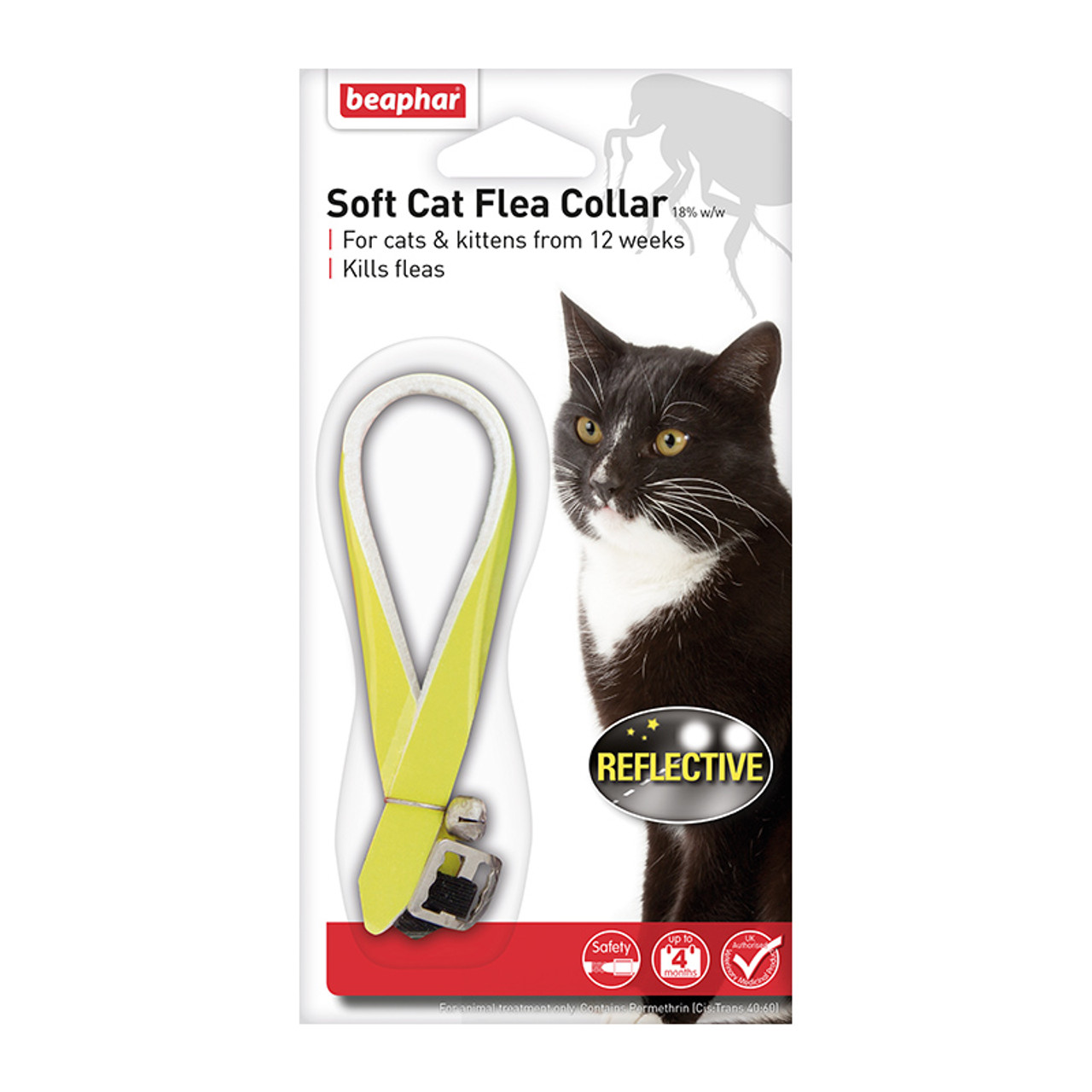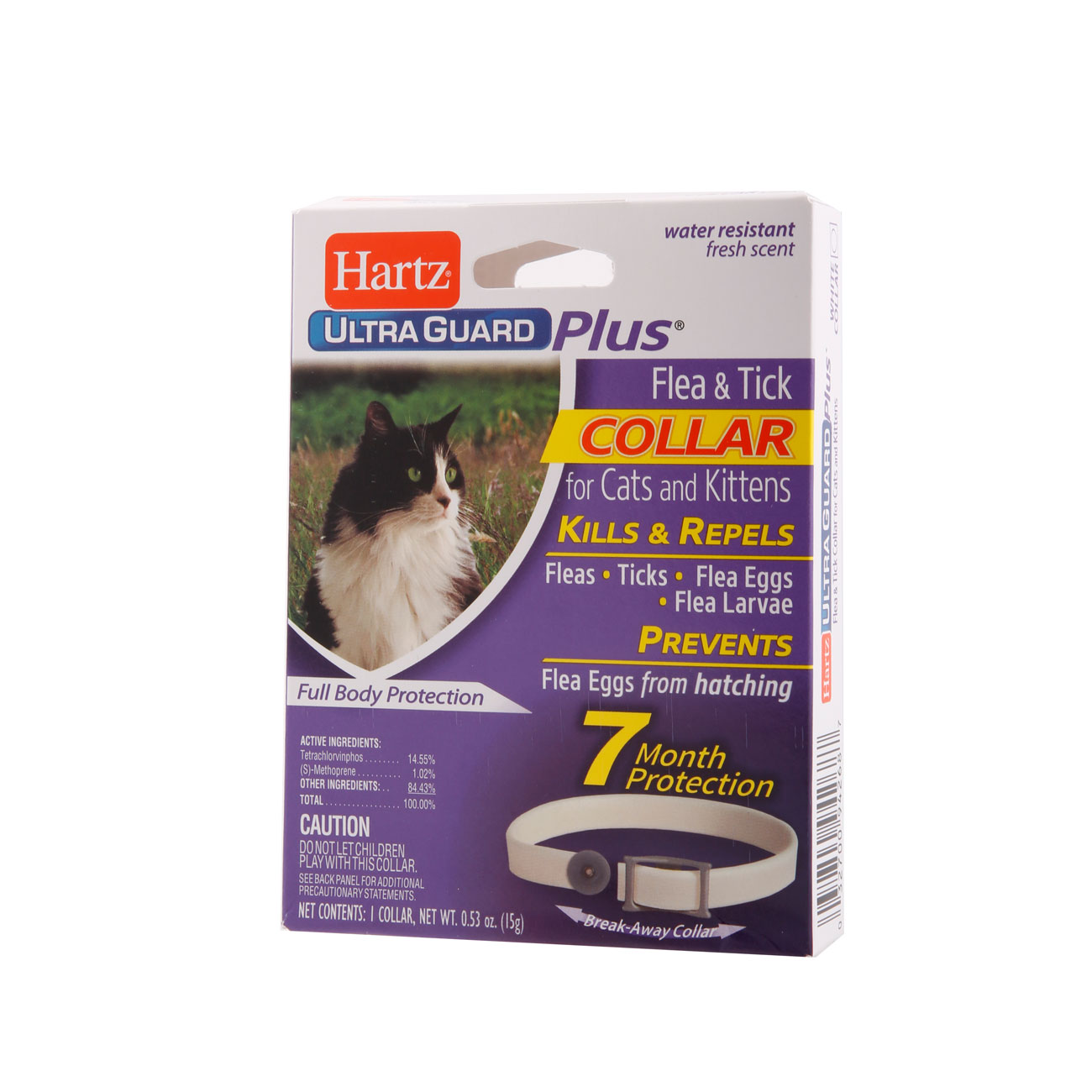As a cat owner, it can be concerning to find out that your beloved feline has fleas. Fleas can cause discomfort and skin irritation for cats, and they can also lead to infestations in your home. So, what should you do if your cat is pregnant and has fleas? Can you use a flea collar to get rid of the pests, or is it too risky for your cat’s health?
The short answer is that pregnant cats can wear flea collars, but there are some precautions you should take. In this article, we’ll explore the safety of using flea collars on pregnant cats, the types of flea collars available, and some other effective flea treatment options that are safe for pregnant cats. By the end of this article, you’ll have a better understanding of how to protect your pregnant cat from fleas and keep her healthy during this important time.
It’s not recommended to use flea collars on pregnant cats. The chemicals in flea collars may harm the unborn kittens or cause birth defects. Flea collars can also be ingested during grooming, which can be dangerous. Consult with your veterinarian for safe flea prevention options for pregnant cats.

Can Pregnant Cats Wear Flea Collars?
Flea collars are one of the most popular ways to keep your cat free of fleas and ticks. However, if you have a pregnant cat at home, you may be wondering if it’s safe to use a flea collar on her. In this article, we will explore whether pregnant cats can wear flea collars and what precautions you should take to ensure their safety.
What are flea collars?
Flea collars are a type of collar that releases chemicals that kill fleas and ticks. These collars are usually made of plastic and contain insecticides that are designed to repel and kill fleas and ticks. Flea collars can be worn by cats of all ages and sizes, but pregnant cats require special consideration.
Flea collars work by releasing chemicals that spread over your cat’s coat, killing fleas and ticks on contact. While these chemicals are generally safe for cats, they can be harmful to pregnant cats and their developing fetuses.
What are the risks of using flea collars on pregnant cats?
The chemicals in flea collars can be absorbed into your cat’s skin, which can then be passed on to her developing fetuses. This can lead to a range of health problems, including birth defects, stillbirths, and miscarriages.
Additionally, flea collars can cause skin irritation and allergic reactions in cats, which can be especially dangerous for pregnant cats. If your pregnant cat has an allergic reaction to the flea collar, it can cause her to become ill and may even harm her fetuses.
What precautions should you take when using flea collars on pregnant cats?
If you must use a flea collar on your pregnant cat, there are several precautions you should take to ensure her safety. First, make sure you choose a flea collar that is specifically designed for use on pregnant cats. These collars are formulated to be safe for pregnant cats and their fetuses.
Second, make sure you follow the instructions carefully when using the flea collar. This will help ensure that your cat is getting the right amount of medication and that the collar is working effectively.
Finally, keep a close eye on your pregnant cat after you’ve started using the flea collar. Watch for any signs of skin irritation, allergic reactions, or other symptoms that may indicate a problem. If you notice any of these symptoms, stop using the flea collar immediately and contact your veterinarian.
The Benefits of Using Flea Collars on Cats
While flea collars may not be safe for pregnant cats, they can be an effective way to keep your cat free of fleas and ticks. Some of the benefits of using flea collars on cats include:
- Easy to use
- Long-lasting protection
- Less mess than topical treatments
- Can be used on cats of all ages and sizes
Flea Collars vs. Other Flea Treatments
Flea collars are just one of many flea treatments available for cats. Some of the other options include:
- Topical treatments
- Oral medications
- Flea shampoos
- Flea sprays
Each of these treatments has its own advantages and disadvantages. Topical treatments, for example, are easy to apply and provide long-lasting protection. However, they can be messy and may not be suitable for cats with sensitive skin. Oral medications, on the other hand, are easy to administer and can provide quick relief from flea infestations. However, they may not be suitable for cats with certain medical conditions.
When choosing a flea treatment for your cat, it’s important to consider your cat’s individual needs and any health concerns she may have. Always talk to your veterinarian before using any new flea treatment on your cat.
The Bottom Line
While flea collars can be an effective way to keep your cat free of fleas and ticks, they should not be used on pregnant cats. The chemicals in flea collars can be harmful to pregnant cats and their fetuses, leading to a range of health problems. If you must use a flea collar on your cat, make sure you choose one that is specifically designed for use on pregnant cats and follow the instructions carefully. And remember, there are many other flea treatments available that may be safer and more effective for your cat’s needs.
Frequently Asked Questions
Here are some answers to common questions regarding the use of flea collars on pregnant cats.
Can pregnant cats wear flea collars?
Yes, they can. However, it is important to choose a flea collar that is safe for pregnant cats. Look for a collar that is labeled as safe for use on pregnant or nursing cats, and avoid collars that contain harmful chemicals such as permethrin or pyrethrin.
It is also important to regularly monitor your cat for any signs of discomfort or irritation from the flea collar. If your cat shows any signs of allergic reaction or discomfort, remove the collar immediately and consult with your veterinarian.
Are flea collars safe for unborn kittens?
While there is no conclusive evidence that flea collars are harmful to unborn kittens, it is generally recommended to avoid using any kind of pesticide on pregnant cats. This is because the chemicals in the flea collar could potentially harm the developing kittens or cause birth defects.
If you are unsure about whether or not to use a flea collar on your pregnant cat, it is always best to consult with your veterinarian for advice on the safest options for flea control during pregnancy.
What are some alternative flea control options for pregnant cats?
There are several alternative flea control options that are safe for pregnant cats. These include flea combs, which can be used to physically remove fleas and their eggs from your cat’s fur, and topical treatments that contain natural ingredients such as essential oils or neem oil.
You may also want to consider using flea prevention methods around your home, such as vacuuming regularly and washing your cat’s bedding in hot water. This can help to reduce the risk of flea infestations and keep your pregnant cat and her unborn kittens safe and healthy.
How often should I check my pregnant cat for fleas?
It is important to check your pregnant cat for fleas regularly, especially during the warmer months when flea populations are highest. Check your cat’s fur for any signs of flea dirt or live fleas, and pay special attention to areas such as the neck, behind the ears, and around the base of the tail.
If you do find fleas on your pregnant cat, it is important to take action to control the infestation as soon as possible. This may involve using a flea collar or other flea control method, as well as treating your home and yard to eliminate fleas and prevent reinfestation.
What should I do if my pregnant cat accidentally ingests flea collar chemicals?
If your pregnant cat accidentally ingests flea collar chemicals, it is important to seek veterinary care immediately. Symptoms of flea collar poisoning may include vomiting, diarrhea, lethargy, and seizures.
Your veterinarian may recommend inducing vomiting to remove the chemicals from your cat’s system, or providing supportive care such as intravenous fluids and medication to control seizures or other symptoms. In severe cases, hospitalization may be necessary.

Are Flea Collars Dangerous for Cats? A Vet Explains
As a professional writer, I understand that the health and safety of our pets are of utmost importance, especially during pregnancy. The question of whether pregnant cats can wear flea collars is a valid concern for pet owners. While flea collars may seem like a quick and easy solution to eliminate fleas, it is essential to consider the potential risks and benefits before using them on pregnant cats.
In conclusion, pregnant cats should not wear flea collars without consulting a veterinarian first. While some flea collars may be safe for pregnant cats, others may contain harmful chemicals that can be toxic to both the mother and her unborn kittens. It is crucial to weigh the risks and benefits of using flea collars and to explore alternative methods of flea prevention, such as regular grooming and vacuuming, to keep pregnant cats and their kittens healthy and happy. As responsible pet owners, we must prioritize the well-being of our pets and take every precaution necessary to ensure their safety.
